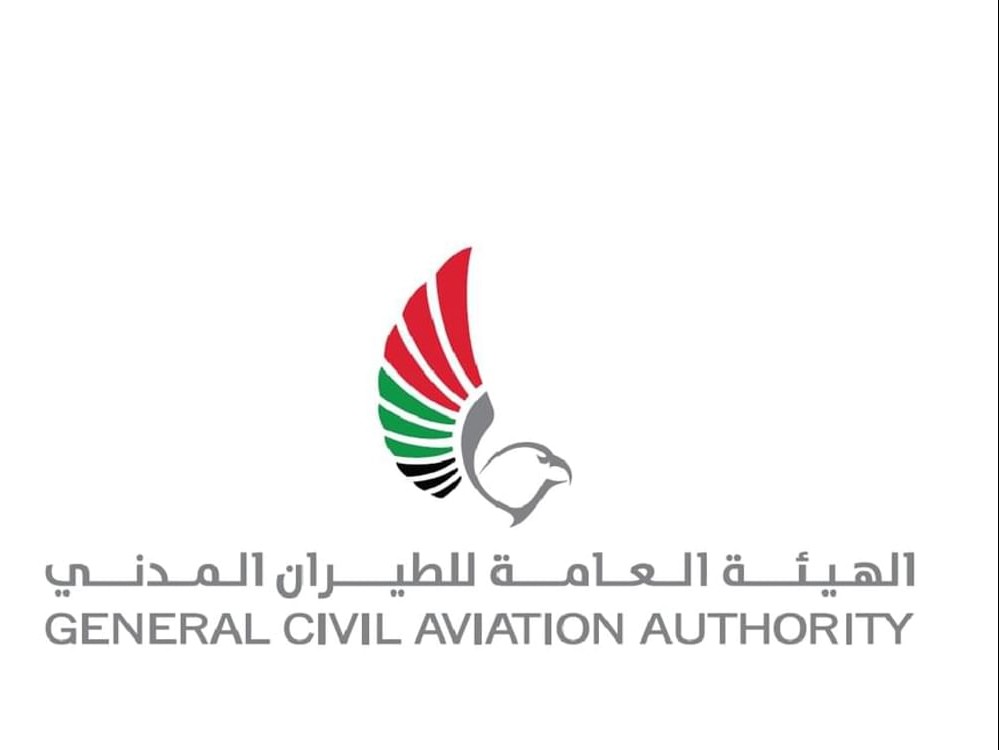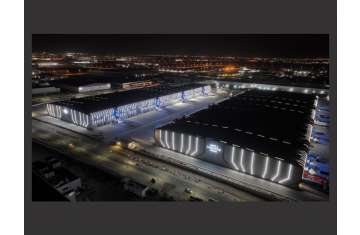The UAE's aviation sector today celebrated the “UAE Civil Aviation Day”, which falls on 5th October each year, marking the anniversary of the first airplane landing in the UAE, specifically in the Emirate of Sharjah, on the same day in 1932. The runway for the airplane landing was prepared in the Al Qasimia area of Sharjah in 1930, making it the first airport established in the Arabian Gulf region at that time.
Over 90 years later, the UAE's civil aviation sector leads numerous global competitiveness indicators, surpassing many developed nations. The country boasts six national carriers renowned for luxury, quality, security, and safety. During the first eight months of this year, our national carriers operated 4,807 weekly flights to numerous destinations around the world.
In addition, the UAE has 10 airports, including 8 international airports ranked among the best and busiest in the world. These airports welcomed more than 97.9 million passengers in the first eight months of this year, reflecting a growth rate of 12.6 percent, compared to 86.9 million passengers during the same period last year.
Abdullah Bin Touq Al Marri, Minister of Economy and Chairman of the Board of Directors of the GCAA, said: "UAE Civil Aviation Day represents an opportunity to celebrate the vision of our wise leadership, which has positioned the UAE at the forefront of the world in the aviation sector. This sector today serves as a fundamental pillar of national economic growth and enhances its competitiveness regionally and internationally. Additionally, this vital sector has played a key role in establishing the UAE as a bridge for connecting with global markets.
The UAE is globally recognised for the rapid growth of its aviation infrastructure, which accounted for less than 1 percent of the GDP at the founding of the country in 1971, while today the sector contributes up to 13.3 percent of the GDP. According to estimates from the International Air Transport Association (IATA), the air transport market in the UAE is expected to grow by 170 percent over the next twenty years, resulting in an addition of 101 million passenger flights by 2037. This growth will also support the national economy by contributing approximately $127.7 billion and will create 1.4 million jobs.
Bin Touq continued: “Our national efforts are ongoing in developing the aviation industry in the country, relying on innovation, sustainability, and the best global practices in this regard. We aim to provide high-quality services in the transportation, travel, and logistics sectors, contributing to enhancing the country's global standing as a major hub for air transport, in line with the targets of the “We the UAE 2031” vision.”
H.H. Sheikh Ahmed bin Saeed Al Maktoum, President of Dubai Civil Aviation Authority (DCAA), Chairman of Dubai Airports, and Chairman and Chief Executive of Emirates Airline and Group, and a member of the Board of Directors of the GCAA: “The aviation sector in the UAE is a vital artery connecting us to the world, with Dubai International Airport standing as a global model for growth and quality. The airport serves over 90 million international passengers annually, and through our partnerships with global airlines, we strive to enhance air connectivity between the UAE and countries around the world. Today, we celebrate our achievements, which would not have been possible without the visionary leadership of our wise government.
We remain committed to delivering excellence to ensure the UAE's continued role as a global hub for civil aviation."
Mohamed Ali Al Shorafa, Chairman of the Department of Municipalities and Transport – Abu Dhabi, and a member of the Board of Directors of the GCAA, stated: "This day is an opportunity to celebrate what we have achieved in the civil aviation sector in Abu Dhabi and the UAE as a whole. The country today boasts an infrastructure that ranks among the best in the world, with Zayed International Airport serving as a world-class example of modern airport design.
Zayed International Airport is a model of sophisticated, sustainable infrastructure that supports the growth of the aviation sector, ensuring exceptional services for millions of travelers who come to our city from across the globe and call it home.
The developments witnessed in the civil aviation sector in the UAE not only enhance the travel experience, but also contribute to driving the national economy. We understand what businesses need to thrive, and we are committed to continuing to empower Abu Dhabi as a hub for air transport in the region."
Sheikh Khalid Bin Isam Al Qasmi. Chairman of Sharjah Department of Civil Aviation and a member of the Board of Directors of the GCAA, stated: "We take pride in the pivotal role played by the Emirate of Sharjah in enhancing the UAE's civil aviation sector, as the emirate is historically significant for being the site of the first aircraft landing in the country. Today, Sharjah International Airport stands as a key hub in the air transport network of the UAE and the region as a whole. Efforts are ongoing to invest in expansion projects for the infrastructure, supporting our future vision and enhancing the airport's capacity to accommodate growth in air traffic.
On this national day, we reaffirm our shared vision to achieve leadership and innovation in the aviation sector and to enhance the UAE's position as a leading destination in the world of aviation."
Engr. Sheikh Salem bin Sultan bin Saqr Al Qasimi, Chairman of the Department of Civil Aviation-Ras Al Khaimah and a member of the Board of Directors of the GCAA, stated:"We are committed in the Emirate of Ras Al Khaimah to developing an advanced infrastructure for civil aviation that aligns with the aspirations of the nation and supports its future vision. UAE Civil Aviation Day is an important occasion to reaffirm our determination to continue working diligently toward a bright and sustainable future for this vital sector.
By investing in modern technology and enhancing safety standards, we aim to improve the travel experience and strengthen air connectivity with the world. We will continue to work in a spirit of cooperation and partnership with all stakeholders to achieve our ambitious goals and enhance the UAE's position as a leading destination in the field of civil aviation."
Mohammed Abdullah Al Salami, Chairman of the Department of Civil Aviation in Fujairah, and Vice Chairman of the Board of Directors of the GCAA, stated: "UAE Civil Aviation Day is an occasion to celebrate our achievements and the sector's ability to overcome many challenges, as well as to consider the promising opportunities that the future holds for this vital sector. We take pride in the Emirate of Fujairah for having Fujairah International Airport, which is the only airport on the eastern coast of the country and a safe haven for national and foreign carriers during adverse weather conditions.
We are continuously working on further development to enhance the airport's efficiency and improve its services to meet the anticipated growth in air traffic over the coming years.
We are committed to continuing innovation and growth, working together toward a brighter, more prosperous, and sustainable future for civil aviation in the country."
Saif Mohammed Al Suwaidi, Director General of the General Civil Aviation Authority GCAA, stated: "On UAE Civil Aviation Day, we celebrate numerous success stories that have laid the foundation for this thriving sector, whether in the development of airport infrastructure or the competitive reputation of our national carriers, along with the growing network of international relations. The country ranks first globally in the number of air transport agreements, having signed 189 air cooperation agreements so far, which represents more than 90 percent of the countries in the world.
On this day, we reaffirm our determination and commitment, through ongoing collaboration with our partners in all federal and local entities, as well as with national and foreign airlines operating in the country, to continue developing strategies that enhance the safety and security of aviation and support efforts toward a green, low-carbon aviation system, in line with the UAE's future vision for this vital sector.''
 UAQ Ruler performs Eid Al-Fitr prayer at Ahmed bin Rashid Al Mualla mosque
UAQ Ruler performs Eid Al-Fitr prayer at Ahmed bin Rashid Al Mualla mosque
 Hamad Al Sharqi performs Eid Al-Fitr prayer at Sheikh Zayed mosque in Fujairah
Hamad Al Sharqi performs Eid Al-Fitr prayer at Sheikh Zayed mosque in Fujairah
 European Commission to invest €1.3 billion in AI, cybersecurity, digital skills
European Commission to invest €1.3 billion in AI, cybersecurity, digital skills
 UN Security Council condemns attack on Niger’s Kokorou town
UN Security Council condemns attack on Niger’s Kokorou town
 Magnitude 5.0 earthquake strikes Fiji
Magnitude 5.0 earthquake strikes Fiji
 Dubai Data Partners with BlueGen to Enhance Labor Force Survey Accuracy
Dubai Data Partners with BlueGen to Enhance Labor Force Survey Accuracy
 Jafza expands Logistics Park with AED90 million investment t
Jafza expands Logistics Park with AED90 million investment t

 UAQ Ruler performs Eid Al-Fitr prayer at Ahmed bin Rashid Al Mualla mosque
UAQ Ruler performs Eid Al-Fitr prayer at Ahmed bin Rashid Al Mualla mosque
 Hamad Al Sharqi performs Eid Al-Fitr prayer at Sheikh Zayed mosque in Fujairah
Hamad Al Sharqi performs Eid Al-Fitr prayer at Sheikh Zayed mosque in Fujairah
 European Commission to invest €1.3 billion in AI, cybersecurity, digital skills
European Commission to invest €1.3 billion in AI, cybersecurity, digital skills
 UN Security Council condemns attack on Niger’s Kokorou town
UN Security Council condemns attack on Niger’s Kokorou town
 Magnitude 5.0 earthquake strikes Fiji
Magnitude 5.0 earthquake strikes Fiji
 Dubai Data Partners with BlueGen to Enhance Labor Force Survey Accuracy
Dubai Data Partners with BlueGen to Enhance Labor Force Survey Accuracy
 Jafza expands Logistics Park with AED90 million investment t
Jafza expands Logistics Park with AED90 million investment t











Comments